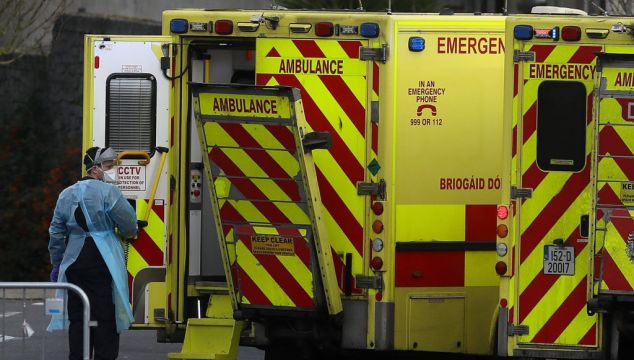Early data from Denmark and South Africa suggests there may be lower hospitalisation rates with the new Omicron variant of Covid-19.
As reported in The Irish Times, Professor Paddy Mallon, a consultant at St Vincent’s Hospital and professor of microbial diseases at UCD, said a “distinct disconnect” between daily case numbers and deaths was being reported in South Africa.
According to the infectious diseases consultant, early data about the latest variant is “reassuring.”
“There is a sense, talking to the South Africans, that the brunt of this pandemic is being felt in the community rather than in the hospitals,” Professor Mallon explained.
“So, a lot of people are getting sick, but the brunt of it is falling on community services rather hospitals. Whether that will happen here remains to be seen.”
Professor Mallon said that although there was an “alarming” number of cases of the Omicron variant in Denmark, there had not yet been a translation into very high hospitalisation rates.
Denmark, which has a similar population and vaccination rate to Ireland, recently imposed new restrictions to curb the spread of Covid-19.
“They are about a week ahead of us in terms of Omicron and, when you look at their numbers, they are alarming. The day before yesterday they had 11,000 cases... two weeks ago, they had about 7-8,000 cases a day.
“Normally, two weeks later, you expect that to translate into hospital admissions. Yesterday, they had an additional 15 hospitalisations,” he told the Brendan O’Connor Show on RTÉ radio.
While there is “a lot of talk of Armageddon” regarding what might happen in the UK, Professor Mallon said it is worth noting that Ireland has had different policies, as well as public buy-in, when it comes to Covid-19.
“So, we just need to take a breath and see what unfolds over the next week to 10 days in Denmark,” he added.
'Bulletproof'
On the subject of the booster vaccines, Professor Mallon warned against recipients assuming they are “bullet-proof” against the virus or passing it on.
According to the infectious diseases expert, while the consensus is that it takes seven days for the benefits of the booster to kick in, there is still a high risk of transmitting the virus.
“So, if people think that just because I’ve got a booster, I don’t need to follow the public health advice, that I can meet up with vulnerable members of my family, that really isn’t the case.
“We do need to take other measures to protect our loved ones, especially around this time of year.”
Professor Mallon advised those planning to meet vulnerable family members over the festive season to follow all the usual guidelines around ventilation and mask wearing. He also mentioned the use of antigen testing before meeting up with others.
“We know from last year that you don’t get a second chance... I saw that last January in hospital when huge numbers of people were coming in, very unwell, because they made the wrong choices at Christmas.
“Some of those people will not be sitting at Christmas dinner this year. Everyone needs to take a step back, look at who you are mingling with, look at your loved ones, and make sure to take the necessary precautions.”







